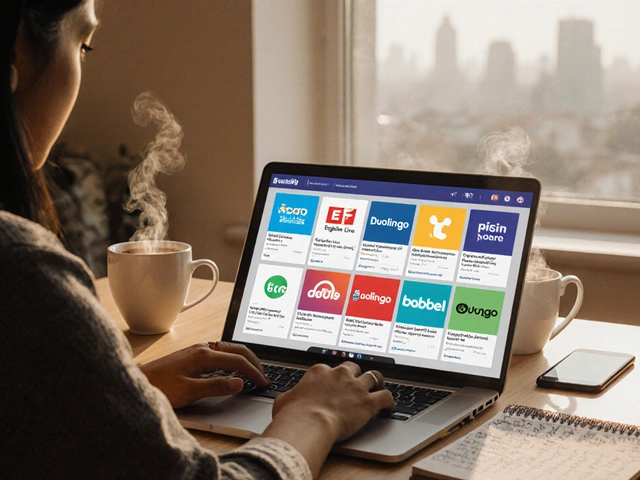
So, you're wondering if the ICSE board is valid in the USA? It's a common question for students looking to jump across the pond. The good news is, ICSE enjoys a fair bit of global recognition, including in the US of A. Universities in America often assess applications holistically, which means they're interested in more than just which board you followed in high school.
The ICSE syllabus is well-respected for its well-rounded approach, emphasizing English language skills and analytical subjects, which can be advantageous. But hey, like anything, it's not without its quirks compared to the likes of CBSE or IB. But when it comes to applying for colleges, those distinctions seem to fade away more than you’d expect.
Now, if you're planning to study in the States, remember, each university might view your qualifications a bit differently. With a good academic record and strong SAT scores, ICSE students have successfully made their way into American universities. And let's not forget about those international student offices—they’re there to help students like you sail smoothly through the application process.
- Understanding ICSE's Global Recognition
- ICSE vs. CBSE: A Quick Comparison
- Navigating US Universities with an ICSE Background
- Tips for ICSE Students in the USA
Understanding ICSE's Global Recognition
The ICSE syllabus has carved a significant niche for itself when it comes to international recognition. Specifically, in countries like the USA, ICSE is respected for its comprehensive curriculum. It puts a lot of weight on English language skills, science, and mathematics, which aligns well with many international academic standards.
Why is ICSE Respected Worldwide?
ICSE, managed by the Council for the Indian School Certificate Examinations, isn’t just an Indian phenomenon. The curriculum is designed to promote analytical skills and a thorough understanding of various subjects. This aspect makes it attractive for universities that seek students with strong foundational skills.
Moreover, the examination style encourages not just rote memorization but the application of knowledge. This is a huge bonus point at universities abroad where creativity and critical thinking are prioritized. No wonder many schools across the Middle East, Africa, and Southeast Asia offer ICSE as a primary board.
US Universities' Take on ICSE
When it comes to American universities, their admissions offices recognize the strengths of ICSE. There's a relatively good track record of ICSE students getting accepted into top schools, especially with additional standardized tests like the SAT or ACT. Admissions committees often appraise ICSE student applications for their rigorous academic performance.
ICSE's Growing Influence
Beyond just the USA, countries within the Commonwealth often regard ICSE students positively. The board's emphasis on English literature, both contemporary and classic, positions students well for courses in humanities and science alike.
Interestingly, some universities conduct their own research into international students. There's evidence suggesting that students with ICSE backgrounds adapt better academically due to their prior exposure to a challenging syllabus.
Here’s a quick look at how ICSE fares globally:
| Region | Reputation |
|---|---|
| USA | Well-regarded, with focus on holistic appraisal |
| UK | Accepted, especially in Russell Group universities |
| Commonwealth Nations | Positive recognition due to cultural and educational ties |
So, if you’re armed with an ICSE background, looking overseas for education isn’t just plausible; it’s promising!
ICSE vs. CBSE: A Quick Comparison
Both ICSE and CBSE are popular Indian educational boards, and although they share some similarities, they have several crucial differences. Digging into these can help students and parents make informed decisions about their educational paths.
Course Structure and Focus
The ICSE (Indian Certificate of Secondary Education) is known for its comprehensive approach, often giving students a broad base in languages, arts, and sciences. It emphasizes English heavily, which can give students an edge in international settings like the USA. On the other hand, CBSE (Central Board of Secondary Education) follows a more streamlined approach with a focus on mathematics and science.
If your aim is to dive deep into a subject or even take part in competitive exams in India, CBSE might align better with that goal. But if you're looking to build a strong foundation in English and be more prepared for global studies, ICSE could be your perfect match.
Assessment and Syllabus
Assessment styles also differ between these boards. ICSE often includes projects and internal assessments, promoting practical learning. In contrast, CBSE is more about theoretical knowledge, focusing primarily on exams. So, if you're someone who thrives on projects and applied learning, ICSE might feel like home.
Recognition
- ICSE validity: Widely recognized, especially in countries like the USA, thanks to its robust English syllabus.
- CBSE: Often favored for entrance exams within India but recognized globally as well.
Student Experience
One common misconception is that ICSE is tougher than CBSE, but it's really about where your interests lie. Are you good with hands-on projects and languages? ICSE may be ideal. Prefer just sticking to textbooks and scoring big in exams? Then CBSE could be your buddy.
| Category | ICSE | CBSE |
|---|---|---|
| Primary Focus | Languages, Arts, Sciences | Science, Mathematics |
| Syllabus Approach | Comprehensive | Structured, Exam-oriented |
| Recognition | Internationally, especially English-speaking countries | Widely in India, recognized abroad |
In the end, there's no one-size-fits-all answer. Choosing between ICSE and CBSE often hinges on personal career goals and learning preferences, so parents and students should weigh these factors carefully.

Navigating US Universities with an ICSE Background
So you're an ICSE student eyeing a spot in one of those fancy American universities? Good choice. The US education system is quite welcoming to international students, and being from ICSE actually gives you a leg up in a few departments. With your strong foundation in analytical subjects and English, you're already part of the way there.
First things first, know this: the ICSE board is considered rigorous, which many universities in the US find appealing. They appreciate the depth in subjects like English and Science. However, it's always a good idea to verify the specifics with each university. ICSE validity can sometimes vary depending on the program you're applying to.
Application Essentials
American universities often require documentation that shows more than just academic prowess. Here's what you generally need to focus on:
- Standardized Tests: SAT or ACT scores. They even things up since schools know these tests are common across the board.
- Essays & Recommendations: Your ICSE background can be a highlight, especially in essays. Discuss the unique perspective it gives you.
- Transcripts & GPA: Ensure your transcript clearly reflects the ICSE scores. Some universities request a conversion to a US GPA.
Keep tabs on application deadlines. They sneak up fast!
"ICSE students often bring with them a level of discipline and detail-oriented study patterns that enable them to transition smoothly into our academic environment," says Dr. Rachel Nguyen, an admissions officer at a major US university.
Extra Tips for ICSE Students
Here's how you can further boost your application:
- Advanced Placement (AP) Courses: They're not mandatory but taking AP exams where you're strong can boost your profile.
- Extracurriculars: US schools love to see well-rounded students, so make sure you're involved outside of class too.
- Network: Reach out to alumni or current students with an ICSE background for insights and advice.
Don't stress too much. You've got the ICSE badge, and that speaks volumes already. With careful planning and a little hustle, you're set to make your mark in the US education system!
Tips for ICSE Students in the USA
Starting your academic journey in the USA with an ICSE background? There are a few tips and tricks to help ease the transition. While the initial cultural and academic shift can seem overwhelming, a structured approach makes it manageable.
Tailoring Your Study Approach
First off, the way you studied for your ICSE exams might need tweaking. Since American courses might emphasize discussions and projects more than rote learning, adapting your study habits early on can be a game-changer. Engage actively in class discussions and participate in group projects to enhance your learning curve.
Getting Familiar with the US Grading System
The grading in the USA can be quite different from what you’re used to. Generally, it spans from A to F with a GPA that reflects your overall performance. Familiarizing yourself with how various assignments affect your grade can help you allocate your time wisely.
Making the Most of University Resources
Universities in the USA are an ecosystem of support and opportunities. Most institutions offer dedicated support services for international students. These services can range from helping you get acquainted with campus life to providing academic assistance. Don’t shy away from using these resources and make sure you stay connected with student advisors.
Networking is Key
When it comes to the USA, networking can open several doors. Make new friends, join clubs, and participate in events to build a support system. This network of connections can be invaluable, not just for making college life enjoyable but also for future career prospects.
Practical Tips for Daily Life
- Get comfortable with using tools like Google Maps and Uber for navigating longer distances.
- Stay organized with apps like Google Calendar to manage your schedules.
- Explore grocery stores like Walmart and Target for affordable shopping options.
With these tips in your back pocket, you'll find adapting to life as an ICSE student in the USA a lot more manageable. Embrace the challenge, keep a positive attitude, and you'll likely thrive in this new academic environment.





